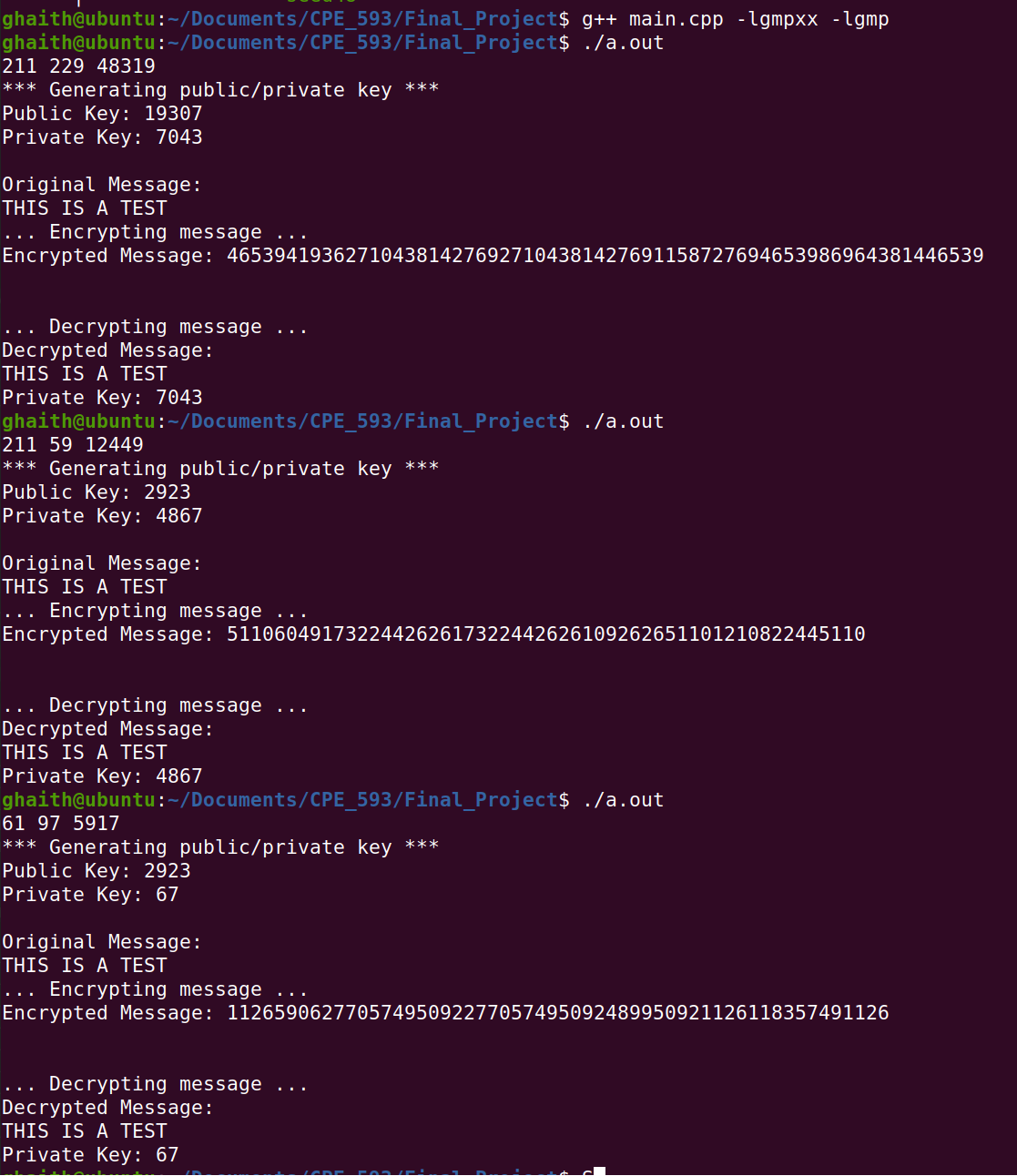Implement RSA using a biginteger library. It doesn’t have to be production quality, but you would need to implement Diffie-Hellman key exchange and use AES-256 (you don’t have to write that) to exchange secret messages.
- RSA is having problems with decrypt (Amanda: I'm sure how to debug - been stuck on it for a week now) - Fixed Dec 5, 2020
- The algorithm doesn't generate large numbers for q, p.
- Generate p, q that are large engough to make encryption secure. Right now the algorithem accepts the first two prime numbers it can get.
- Add padding to the algorithem
- Use void mpz_powm_sec (mpz t rop, const mpz t base, const mpz t exp( instead of mpz_powm .
- Generate a very large prime either (p, q) then use mpz_nextprime to generate the other one.
"This function is designed to take the same time and have the same cache access patterns for any two same-size arguments, assuming that function arguments are placed at the same position and that the machine state is identical upon function entry. This function is intended for cryptographic purposes, where resilience to side-channel attacks is desired."
-
Feed text file to the algorithem instead of simple string.
-
Begin writting final paper
-
Put together final presentation
- Diffie-Hellman Key Exchange (Written by Ghaith)
- RSA Algorithm using GMP (Written by Amanda and Ghaith)
- RSA Algorithm using Boost (Written by Neel)
- Presentation (Made by Amanda)
- Report (Written by All)
The implemented algorithem is a textbook algorithm. The algorithm can be improved by adding padding. Each time the algorithm runs, it generate new two prime numbers and use them to generate the private and publick key. System time was used to seed the random number generator.
